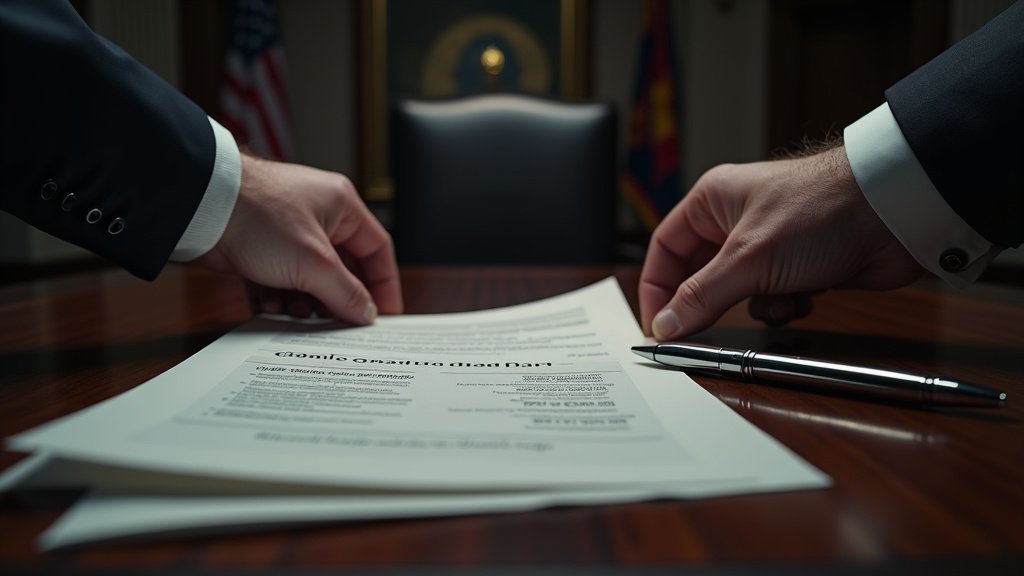Former President Donald Trump has once again injected himself into the world of professional sports, this time demanding that the Washington Commanders and Cleveland Guardians revert to their former team names. Trump’s request, directed at the Washington and Cleveland teams, has been met with swift reaction, reigniting debates about the intersection of sports, politics, and cultural sensitivity. The move also serves as a reminder of Trump’s consistent engagement in sports-related issues, a pattern that has persisted throughout his career.
The Demand and the Threat
The crux of Trump’s intervention centers on the contentious issue of team names. He has publicly called for the Washington Commanders to return to their previous moniker, the Redskins, and for the Cleveland Guardians to once again be known as the Indians. Beyond simply expressing his preference, Trump issued a clear threat. He suggested that he would withhold his support for stadium deals if the teams did not comply with his demands. This tactic, a blend of nostalgia and political pressure, underscores Trump’s willingness to leverage his influence to achieve his desired outcomes. The potential economic implications of this threat add another layer to the unfolding story, with the future of stadium financing potentially hanging in the balance.
Historical Context: Trump’s Sports Involvement
This recent incident is not an isolated event; it is part of a broader pattern of Trump’s engagement in the world of sports. He has frequently voiced his opinions on athletes, their activism, and various sports-related controversies. His views on team names, in particular, have been well-documented, often aligning with a stance that critics have described as insensitive to concerns about racial and cultural stereotypes. His consistent presence in the sports arena reflects his understanding of its cultural and political significance and his willingness to capitalize on its widespread popularity to garner attention and support.
The Teams and Their Decisions
The Washington Commanders and Cleveland Guardians both underwent name changes in recent years, driven by a variety of factors including mounting pressure from Native American advocacy groups and changing societal sensitivities. The decisions were made after extensive internal discussions, community consultations, and a careful consideration of the teams’ respective legacies and futures. Both teams have publicly acknowledged the importance of respecting cultural considerations in their branding strategies. Trump’s call to reverse these decisions represents a direct challenge to the teams’ current stances and the values they have chosen to embrace. The teams are now faced with a difficult choice: adhere to their carefully considered branding strategies or risk alienating Trump and potentially jeopardizing future stadium deals.
Potential Ramifications
The potential ramifications of Trump’s intervention are far-reaching. If the teams were to acquiesce to his demands, it could be seen as a significant step backward in the ongoing efforts to promote inclusivity and respect for all communities. Moreover, it would likely embolden those who oppose the name changes, further polarizing the already charged debate. Alternatively, if the teams stand firm in their current positions, they could face political and economic pressure from Trump and his supporters. The future of stadium projects, which often rely on public funding and political backing, could become uncertain. The situation highlights the significant influence that a prominent political figure can wield in the realm of sports, even after leaving office. The ensuing discussions will no doubt extend beyond the realm of sports, becoming a point of contention in ongoing dialogues about race, identity, and cultural sensitivity.
Looking Ahead
As the Washington Commanders and Cleveland Guardians grapple with Trump’s demands, the situation is poised to generate continued debate and scrutiny. The teams will need to carefully consider their options, weighing the potential consequences of each decision. The reactions of fans, sponsors, and the broader public will play a crucial role in shaping the outcome. The incident underscores the complex interplay of sports, politics, and cultural values, highlighting the challenges and opportunities that arise when these spheres collide. The coming weeks will likely reveal how these teams plan to respond, and what effect the former president will have on their choices.












